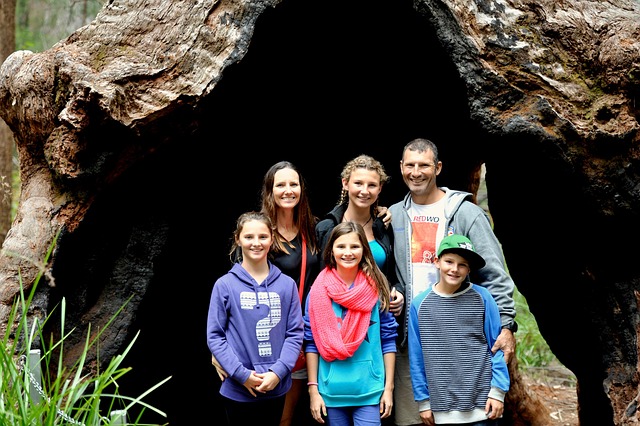Grandparent custody disputes arise when parents face challenges requiring changes in a child's guardianship, with grandparents advocating for their role if historically involved. Legal frameworks protect these rights, varying by jurisdiction. To strengthen their case, grandparents must showcase unique benefits, use evidence like letters, photos, and professional testimonials, and leverage legal precedents. Emotional intelligence and mutual respect are crucial, focusing on the child's well-being and special bond between grandparents and grandchildren. Post-decision, fostering healthy co-parenting ensures stability and contributes to the child's mental health and long-term success. Open communication, role respect, and prioritizing the child's best interests prevent future disputes.
Ensuring grandparent involvement in child custody decisions is a multifaceted process that demands a nuanced understanding of both legal rights and emotional dynamics. Grandparent custody disputes often arise when parents face divorce or separation, highlighting the significant role grandparents can play in a child’s life. This article explores strategic approaches to advocate for grandparental custody, navigating complex emotions during legal proceedings, and fostering positive co-parenting relationships post-decision. By delving into these key areas, we provide insights on how to protect and strengthen grandparental bonds.
- Understanding Grandparent Custody Disputes: Legal Framework and Rights
- Building a Strong Case for Grandparent Involvement: Strategies and Evidence
- Navigating Emotional Terrain: Maintaining Respectful Relationships During Legal Proceedings
- Post-Decision: Fostering Positive Co-Parenting Dynamics Between Grandparents and Grandchildren
Understanding Grandparent Custody Disputes: Legal Framework and Rights

Grandparent custody disputes often arise when a child’s primary caregivers, typically parents, face challenges that may lead to temporary or permanent changes in guardianship. These disputes involve complex legal considerations, with grandparents advocating for their role in a child’s life, especially if they have historically been involved in caring for the child. The legal framework surrounding grandparent custody varies across jurisdictions but generally recognizes and protects the rights of grandparents who wish to maintain or regain access to their grandchildren.
In many cases, grandparent custody rights are derived from state laws that grant certain legal protections and procedures when parents become unable or unwilling to care for their children. Grandparents can petition the court for visitation or custody, providing they can demonstrate a significant relationship with the child and their fitness as caregivers. The court will then consider various factors, including the child’s best interests, the grandparent’s motive for the request, and any potential impact on the family dynamics, before making a decision that aims to foster stability and well-being for all parties involved in the grandparent custody dispute.
Building a Strong Case for Grandparent Involvement: Strategies and Evidence

In many grandparent custody disputes, presenting a compelling case for their involvement is paramount. Lawyers and advocates can strategize by emphasizing the unique bond and significant contributions grandparents can offer to a child’s life. This might include highlighting instances where grandparents have historically played an active role in childcare, providing stability and emotional support, and fostering strong intergenerational relationships.
Evidence such as letters from family members, photographs, or affidavits detailing the positive impact of grandparent-child interactions can strengthen the case. Testimonials from healthcare professionals, educators, or other relatives further validate the value of grandparent involvement. Additionally, legal precedents or state laws that recognize the rights and benefits of extended family members in custody matters can be powerful tools to build a robust case for grandparent custody disputes.
Navigating Emotional Terrain: Maintaining Respectful Relationships During Legal Proceedings

Navigating legal proceedings regarding child custody can be an intensely emotional process, especially when grandparents are involved in grandparent custody disputes. It’s crucial to maintain respectful relationships among all parties to ensure a more harmonious outcome for the child. Grandparents, parents, and legal representatives must approach these situations with empathy and understanding, recognizing the deep love and attachment that grandparents have for their grandchildren. This emotional terrain requires careful navigation, where open communication and mutual respect are paramount.
During legal battles, it’s easy for tensions to rise, but maintaining composure and professionalism is essential. Grandparents should focus on expressing their concerns and aspirations for the child’s well-being while respecting the legal boundaries set by the court. By fostering a cooperative environment, even in contentious situations, everyone involved can work towards a decision that prioritizes the best interests of the child without undermining the significant bond between grandparents and grandchildren.
Post-Decision: Fostering Positive Co-Parenting Dynamics Between Grandparents and Grandchildren

After a child custody decision is made, fostering positive co-parenting dynamics between grandparents and grandchildren is crucial to ensure a harmonious and loving environment for the child’s well-being. Grandparents play a significant role in a child’s life, offering love, support, and unique perspectives that can enrich the child’s upbringing. To facilitate this, it’s essential for all parties involved—including parents, grandparents, and legal guardians—to communicate openly, respect each other’s roles, and prioritize the child’s best interests above all else.
In navigating post-decision dynamics, grandparent custody disputes should be avoided at all costs. This requires a concerted effort from all individuals to set aside personal differences, focus on the child’s needs, and work collaboratively. Regular, structured visits; clear communication channels; and mutual understanding of boundaries can help maintain a stable and nurturing relationship between grandparents and grandchildren. Ultimately, these positive co-parenting dynamics contribute to the child’s overall mental health, sense of security, and long-term success.






